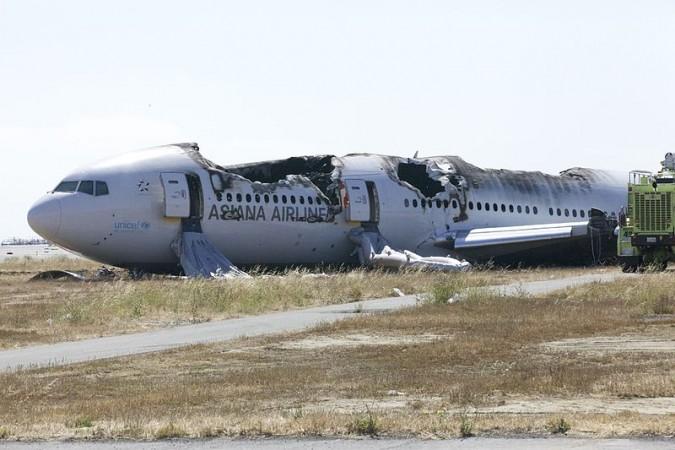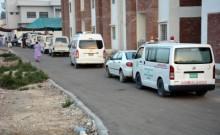
The crash landing of Asiana Airlines Flight 214 on July 6, 2013 was due to mismanagement by the pilots, a federal safety panel concluded on Tuesday.
The pilots primarily mismanaged their landing approach and inadvertently shut off an automatic speed control system that could have prevented the accident, the national Transportation Safety Board said Tuesday.
Concluding the year-long investigation into the crash, which killed three Chinese teens and injured 200 more, the board said that complexities in two of plane's key systems that control flight – autothrottle and auto flight director – also contributed to the accident.
In addition, the pilots also failed to monitor their airspeed and altitude. Importantly, their decision to abort the landing in the last minute, contributed heavily to the crash, the team said.
The crash took place when the Asiana Boeing 777 arriving at San Francisco from Seoul struck a sea wall and slammed into the runway while attempting to land.
Investigators are of the view the pilots came in too slow and too low to touch down safely, the Los Angeles Times reports. Apart from those main reasons, the board also blamed a number of other causes such as complexities in the aircraft controlling systems that were primarily designed for safety.
The 777 has been flying for over 18 years and is one of the world's most popular wide-bodied airlines used specially for international cross-continent flights. But none of its jets had met with an accident, until last year's Asiana incident.
The board's acting Chairman, Christ Hart, said that the accident underscores the problems related to complicated automated aircraft controls that have increasingly been used in aircrafts to improve safety. These complexities open room for errors.
He said the Asian flight crew members "over-relied on automated systems that they did not fully understand," reported Fox News.
"In their efforts to compensate for the unreliability of human performance, the designers of automated control systems have unwittingly created opportunities for new error types that can be even more serious than those they were seeking to avoid," he said.

















